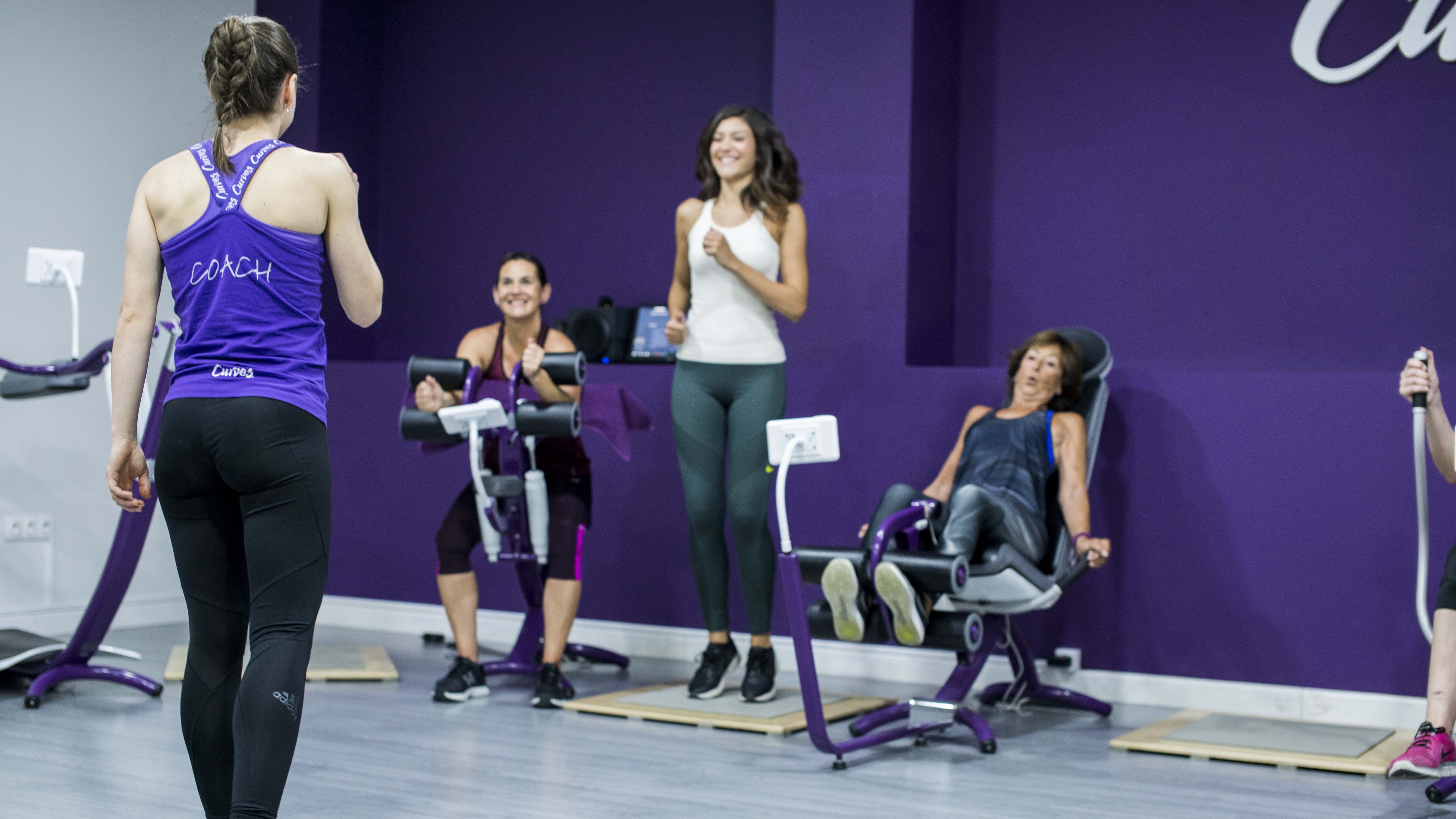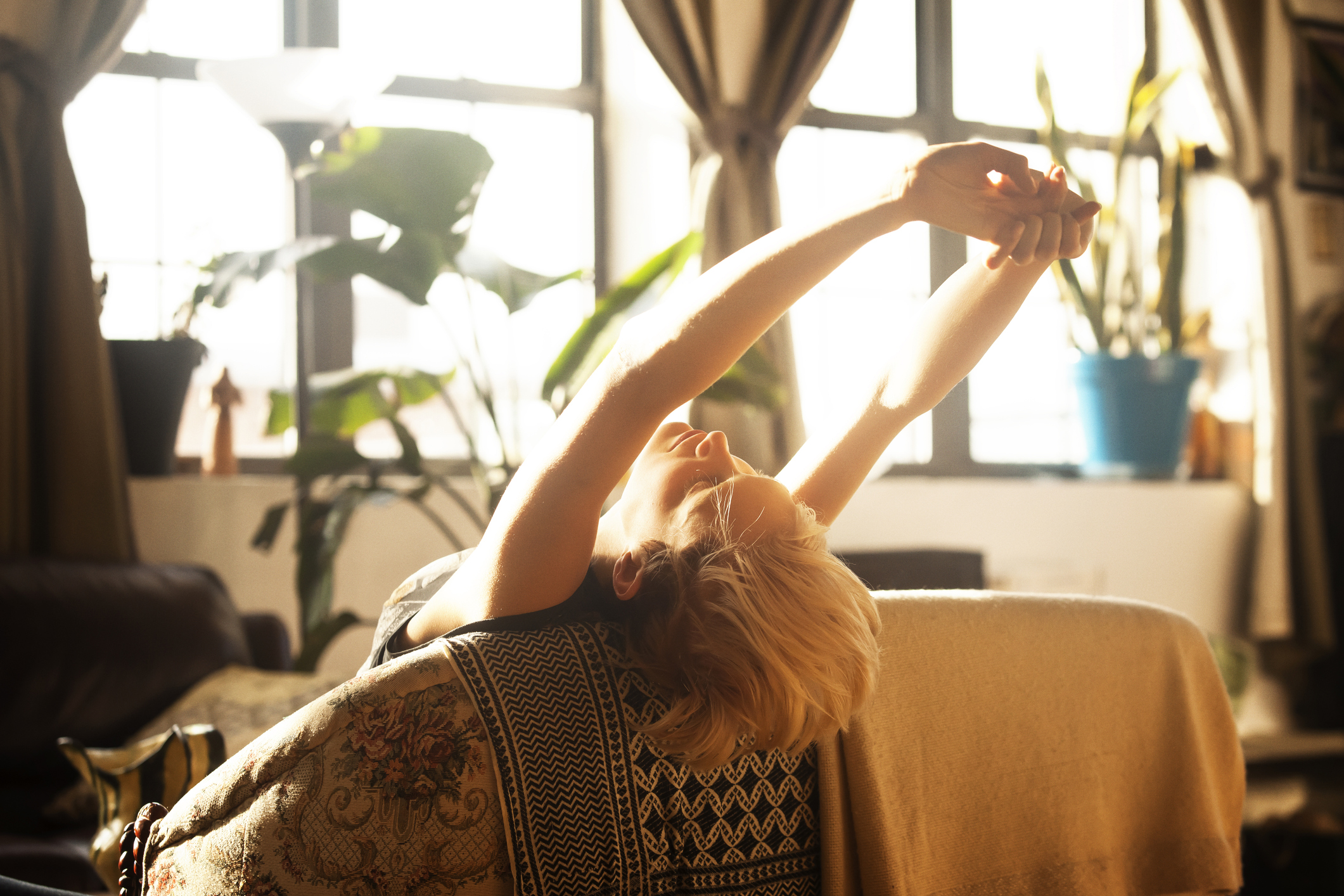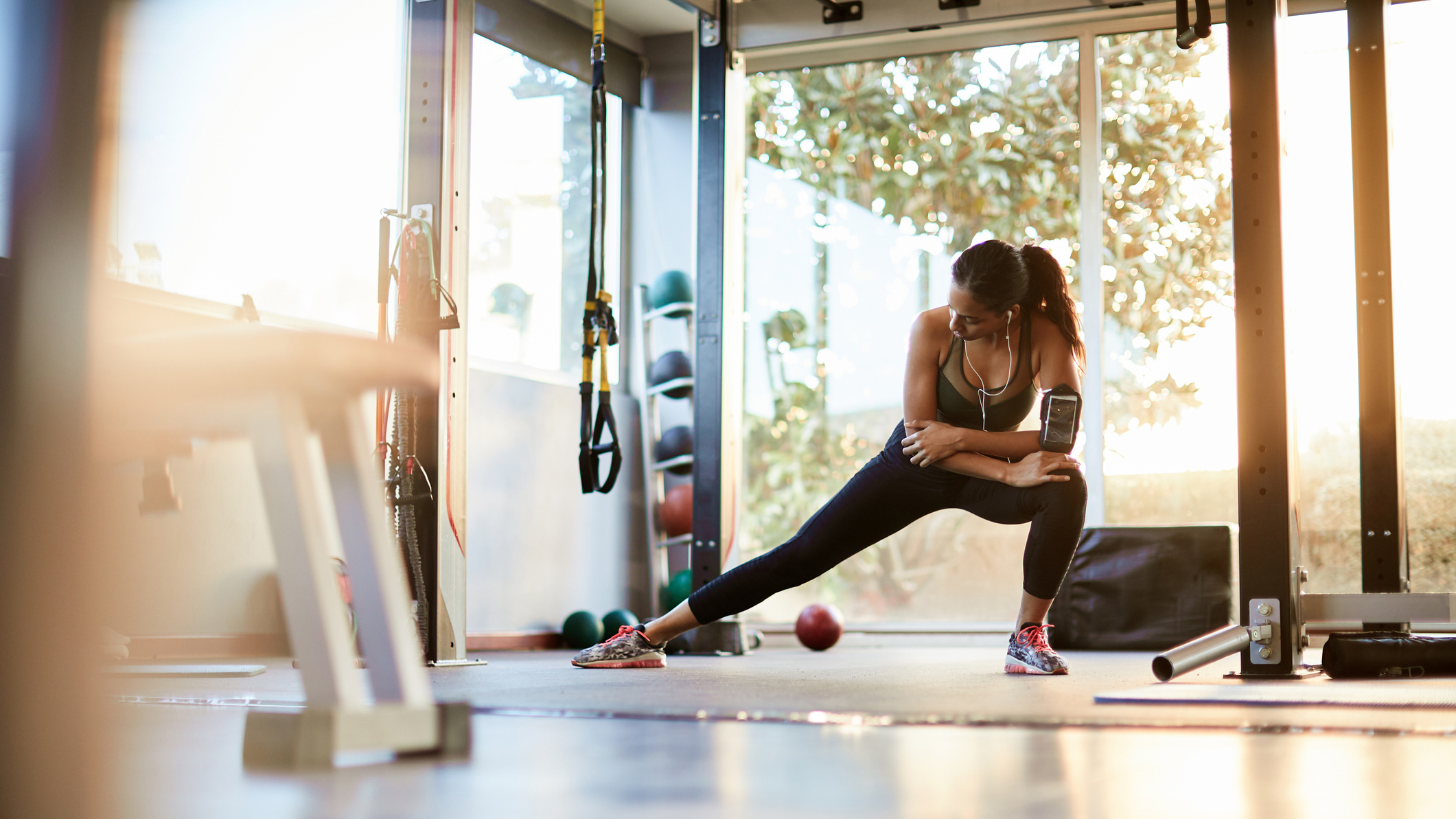Lack workout motivation? Fitness expert reveals how to get your fitness mojo back
7 tips on how to get your fitness motivation back, according to fitness expert Joanna Dase


Gyms and other workout establishments might have reopened thanks to 'Freedom Day' but by now, many of us lack the motivation to actually start working out again. Home workouts might have become a norm for most but admittedly, you'd have a very strong determination to carry on with them after the initial excitement wore off. Is it possible to get your fitness motivation back?
We asked which is why fitness expert Joanna Dase from Curves, who was kind enough to share her top tips to curb feeling de-energised and get back into your workout routine. She's been helping people find their workout mojo for almost two decades and has some excellent ideas on how to reignite everyone's passion for exercising.
Hopefully no one needs a reminder of why regular exercising is so important for your physical and mental wellbeing, but in case you do, let me remind everyone that according to one study from 2021, "exercise is so effective that it should be considered as a drug." Most forms of exercising can help overcome lethargy and other illnesses without any drugs.
Ready to get back to exercising? No? Well, the below tips might help!
Get dressed in your workout gear
One of the best motivation to get (re)started is to invest some money in workout gear, The guilt of not using your new workout shoes or running shoes could be a strong motivation for some people, especially for those who like to get their money's worth.
As Joanna explains, "The act of getting into your gym clothes is the best way to action your intention to workout. Set out your workout gear the night before, so it is laid out and ready for when you get up to workout."
She also likes to emphasise of act of not getting ahead of yourself: "When the time comes, don’t overthink your workout session and simply tackle the first step by getting dressed in the morning. Before you know it, all the steps will have been completed and you would have achieved your workout for the day!"
Get all the latest news, reviews, deals and buying guides on gorgeous tech, home and active products from the T3 experts

Integrate fitness into your morning routine
Research suggests that the best time to exercise to lose weight is in the morning, early morning to be precise. Rolling out of bed in time and doing any sort of workout before you start the day can energise your body and mind so you'll feel less lethargic.
"By getting up early in the morning and working out post-breakfast, you have successfully avoided the 8-10 hours you’d be able to talk yourself out of exercising", Joanna says, "If you’re someone who feels groggy and lacks energy in the mornings, exercising is a great method to start your day with more energy, focus and optimism."
You might want to incorporate stretching into that morning routine too: here are 10 best stretches to improve flexibility and help recovery at home. And yes, you CAN workout or run in the heat: here's how to do it safely.
Revisit your goal
You might have been super fit before you gave up on exercising all those many months ago but it would be unfair to expect that your fitness hasn't deteriorated in those sedentary months. In Joanna's words, "It’s unrealistic to expect that you will instantly reach the same level of pre-pandemic fitness. However, what you can do is revisit your goal and adjust it based on your current lifestyle."
It could also be the case that said goals have shifted since you last exercised. Back then, your aim could have been to improve muscle mass/tone up, but now you might be more interested in losing belly fat and/or boosting metabolism. "Whatever your goal may be, don’t lose sight of why you started working out in the first place!, Joanna suggests, "Journal how you feel before and after each workout, so you can track what exercises you get excited about, and which ones may reduce your motivation to workout."

Focus on form
Practice makes best, as they say, and by not practicing for months, you could end up forgetting how to perform certain exercises the right way. It's not like you can just pick up an adjustable dumbbell or a decent kettlebell and expect your muscles to remember how to bench press correctly or how to perform kettlebell swings.
"It can feel frustrating and discouraging when you can’t reach pre-pandemic fitness levels", Joanna says, "Instead of pushing yourself too far and risking injury, focus your form for exercises that you can do. Proper form will help you to target the areas of your body that you want to, instead of those areas of your body you didn't mean to strengthen."
Avoid ‘boring’ workouts
It's not like strength workouts have ever been fun to perform but you feel even less inclined to sweat under heavy weights than ever before. Joanna suggests trying to find the fun in exercising first before you start taking thing too seriously again: "Moving your body can be an enjoyable part of your daily life. If you’re struggling with motivation, start by dancing to your favourite music or going on a riverside stroll."
She goes on: "Experiment with exercise and if there is something you enjoy, try adding some resistance to it or focussing more on your breathing technique. If you’re unsure about your technique, consult your fitness coach for help." Most types of exercising can be done in a more engaging way, but make sure you always perform workouts in a safe way.
"Working out should not feel intimidating. If your fitness routine does not excite you, it’s time to find movements and a structure that does to remove the risk of losing motivation again", Joanna adds.

Get an 'accountability buddy'
"If you’ve never set foot into a gym before, it can feel daunting, but you don’t have to go at it alone!", Joanna recommends, "Going to the gym with a friend means that you are accountable for turning up to support your friend and have them support you. You can share fitness tips and learn from each other but be careful not to get into a competitive mindset."
As well as that, having a gym buddy can also alleviate most of the anxiety that you might feel when trying to exercise around people that look "better than you". The reality is, no one really pays attention to you in the gym and if you feel intimidated being around a lot of people, you and your friend can always go in quieter hours.
Track other things besides your weight too
Exercising shouldn't just be about trying to reach a certain number on a bathroom scales. Sure, most people will want to lose/gain weight in one way or another but weight change usually happens as part of the process of getting fitter.
"Reaching your personal physical goals is a journey, and changes to your body and lifestyle are not always instant", Joanna warns people, "If you are hyper-focussed on your weight, it can be incredibly discouraging and demotivating when the number on the scale does not change."
"Instead, take note of how much more energised you feel after a workout, or if exercise has helped to reduce mental health issues", she says, "Tuning into and celebrating small victories is a great practice for increasing confidence and will ensure you stick to your fitness routine in the future."
- Lumen review: boost metabolism, improve mood and sleep with this Chris Froome-endorsed device

Matt Kollat is a journalist and content creator for T3.com and T3 Magazine, where he works as Active Editor. His areas of expertise include wearables, drones, action cameras, fitness equipment, nutrition and outdoor gear. He joined T3 in 2019.
His work has also appeared on TechRadar and Fit&Well, and he has collaborated with creators such as Garage Gym Reviews. Matt has served as a judge for multiple industry awards, including the ESSNAwards. When he isn’t running, cycling or testing new kit, he’s usually roaming the countryside with a camera or experimenting with new audio and video gear.